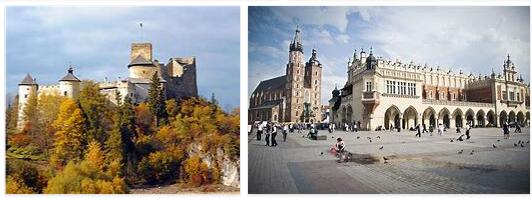With the death of Sigismund Augustus, the Polish throne, formally already elective, but actually hereditary in the Jagellonid family, also becomes elective in fact. And electivity appears full of threats since the first interregnum (1572-1573): the antagonisms between nobility and aristocracy, between Catholics and Protestants, are rekindled while souls are disoriented and divided between the numerous candidates from the East and the West, north and south, all eager to ascend a throne that promised splendor and power. On the proposal of Jan Zamojski, former student from Padua, admirer of Venetian political institutes, brilliant mind, true tribune of the nobility, the election proceeds viritim (active and passive right to vote for all nobles without distinction). Tens of thousands of voters waiting in Warsaw – the choice of the place of election is due to the easier accessibility it offered to the numerous mass of the Masovian petty nobility – concentrated the majority of the votes on Henry of Valois. But to the newly elected, as if to signify that the supreme power belongs to the nation and not to the king, special conditions are dictated (the so-called “Henry’s articles” and the pacta conventa): he will not be able to designate his own successor, he will have to respect the freedom of conscience, he will always hold a council close to him which will include 16 senators, he will convene the diet every two years for the duration of six weeks and will confirm it for the collection of taxes and the authorization for the ban on conscription en masse. Even more: in the case of violation of these covenants, the nobility will be released from the obligation of obedience.
Henry of Valois, elected on these conditions, remained in Poland for only a few months (1574). On hearing the news of Charles IX’s death, he secretly left Poland and returned to France. Thus, after a rather long vacation, the second election was reached. This time there were two elected: Emperor Maximilian II, candidate of the aristocratic party, and Stefano Báthory, prince of Transylvania, candidate of the szlachta who designated Anna Jagellone, sister of Sigismund Augustus as his wife. Báthory, who came immediately to Krakow, got the upper hand; Maximilian’s death prevented a conflict between the two rivals.
According to nexticle.net, by electing Báthory the nobility had a happy hand. In fact, his short reign (1576-1586) was full of political and military successes. Báthory first of all reduced to obedience the city of Danzig which, a partisan of the Habsburgs, had not wanted to recognize him; he then waged war on Russia (1579-1582) and, victorious, he snatched Livonia (lost in 1577) and the lands of Polock from his dominion; finally defeated the Habsburg party of the Zborowskis. At the same time he introduced a radical reform in the judicial field, establishing special central courts (appellate courts), one for Poland and one for Lithuania; and at least partially reorganized the army on a more modern basis. In all these enterprises Báthory benefited from the valuable subsidy of Zamojski in whose hands he gathered the highest civil and military offices: those of chancellor and etman. Their concerted action and the support that they ended up obtaining from almost all the nobility show how a strong government (“sum rex vester non fictus neque pictus” Báthory said immediately at the beginning of his reign) was possible even under of noble democracy, if supported by the personal prestige of those who held it.
After Báthory’s untimely death, Zamojski succeeded a third time in imposing his own candidate, Sigismondo Vasa (Sigismondo III, 1587-1632), son of Caterina Jagellone. But this time the civil war was not avoided: in Byczyna the Hapsburg party of the Zborowskis was defeated and the Archduke Maximilian himself, already proclaimed king, was taken prisoner by the Zamoski. But the Swede disappointed the hopes of his constituents. Closed temperament, suspicious, devoid of military talent, friend of the Germans, Sigismund pushed Zamojski into opposition, alienated himself from the beginning the sympathies of the szlachta, and in the “inquisitorial diet” of 1592 he had to publicly retract his secret alliances with the Habsburgs. Nonetheless, he continued to conduct a policy dictated above all by personal and dynastic interests. To secure the Swedish throne, stolen from him by his uncle Charles of Sudermania, he involved the Poles in a long war with the Swedes (1600-1611), which, despite the magnificent victory achieved by Charles Chodkiewicz at Kirchholm (1605), did not give any advantage. to Poland, because the king, after the death of Zamojski, had to defend himself with arms against the open rebellion of a part of the nobility who, led by Nicola Zebrzydowski, wanted to prevent the planned modifications (introduction of fixed taxes and a stable army) in the Polish constitution. The rebels were indeed defeated, but the king had to give up any attempt at reform. The discontent of the Protestants contributed a lot to foment this first great revolt, which was not illegal, whose political authority and freedom of worship were diminishing in the face of the energetic conduct of the Jesuits, resolutely supported by the king, who in the synod of Brześć of 1596 had managed to achieve, even if in an incomplete way, the union with Rome of the Ruthenian Orthodox.
